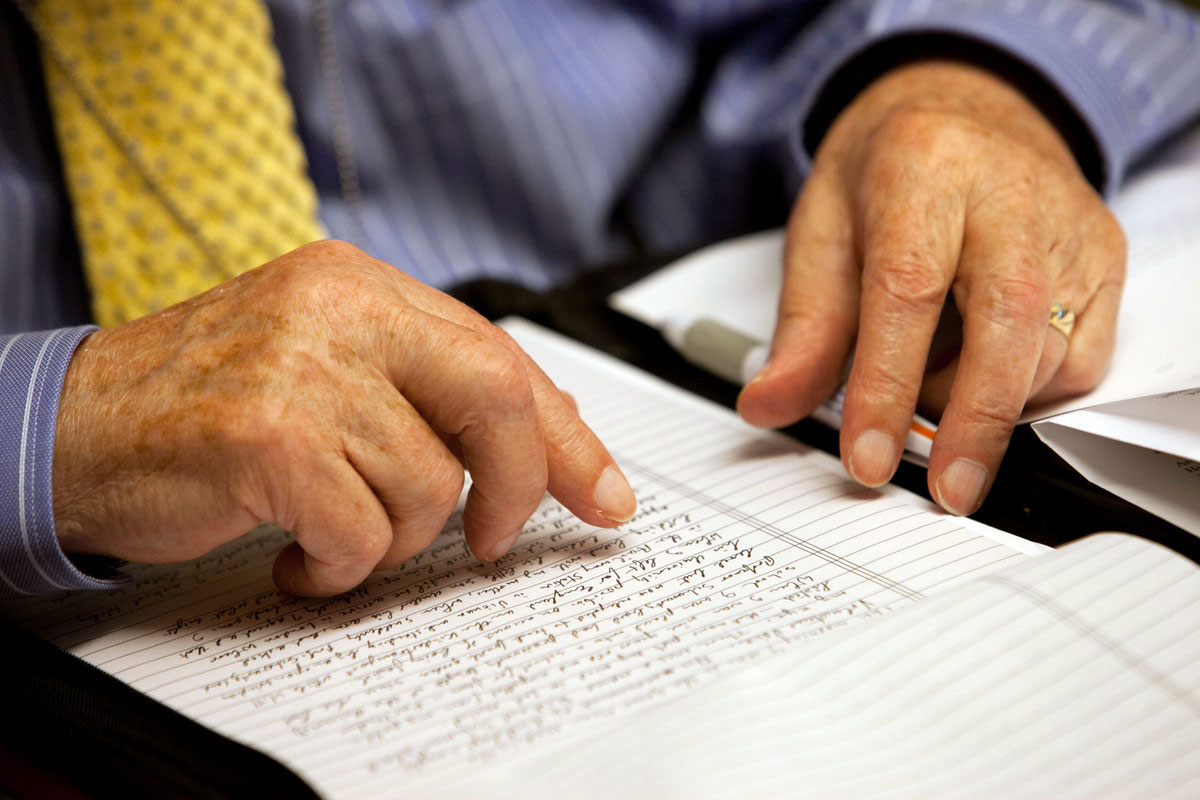Read reflections and testimonies written by Holocaust survivors in their own words.
Blog Home > us army
-
Post–Korea
October 23, 2019
I went into the army shortly after we moved in Brooklyn from a small apartment on the corner of Thirty-Sixth Street and Flatbush Avenue to a more spacious house on Fifty-Ninth Street off King’s Highway and Remsen Avenue. This move accommodated my sister’s family who had recently emigrated from Israel to live with us. When I left the United States Army and my military pay ceased, and with my mother now a widow, I needed to find employment. I took my time looking for a job after mustering out from active duty in the early days of summer 1954. I felt unsettled and took aptitude tests offered by B’nai B’rith to identify paths to my future. These tests showed a distinct and significant predilection to music, although I never studied or played any instruments. I knew absolutely nothing about music except that I loved listening to it, especially symphonies, chamber music, and operas.
-
America
October 23, 2019
I was six years old when I first heard of Americans. The first ones I saw were our liberators. It was in the summer of 1944, and I was hiding in a Catholic boarding school in Montfermeil, a suburb northeast of Paris. Paris was liberated on August 25, 1944, and we were liberated two days later. A student who had left the school came back shouting, “The Allies are coming! The Allies are coming!” So, we all went to the main street to welcome them: tanks, trucks, and jeeps with soldiers with different kinds of helmets and smiles on their faces, giving away chocolate, chewing gum, and even cigarettes. They were our liberators. The headmistress of my school, who was probably the one who knew about my situation as a hidden Jewish child, was holding my hand. (I was the youngest student in that school, and she wanted to make sure I was safe.) I was told they were Americans, and it was the first time I heard of Americans and America. I had heard of the Germans, of course, of the English, of the Italians, but who were these boys? Where did they come from? I was just six, after all.
-
The Aftermath: Right after Liberation, Silence Begins
November 13, 2018
On April 28, 1945, in Garmish Parten Kirchen, Germany, the 179 Hungarian women had 179 opinions of their whereabouts, what to do, and where to go. My mother, sister Shosha, and I looked at one another, cried, hugged, and declared that we had made it in spite of all that we had gone through. In spite of the Nazis’ intentions and efforts. We were relieved that we did not have to be part of the forced death march any more. Our strength had been spent, and we just wanted to sit down due to exhaustion. I knew that if I would have had to march for one more day, I would not have remained alive.
-
Democracy without Equality
November 1, 2013
Since I moved from New Jersey to the Washington, DC, area and was given the opportunity to visit the United States Capitol Rotunda in observance of Yom Hashoah (Holocaust Remembrance Day), I can’t help getting in touch with my memories and emotions on many levels.
-
Going Home: Liberation, May 5, 1945
October 19, 2008
We couldn’t believe that the Nazi soldiers hadn’t killed us. We never thought that we’d be free again. After we discovered that we were liberated from the Gunskirchen concentration camp in Austria, we found out that there had been orders to shoot us all, but the captain in charge had decided not to carry them out.


